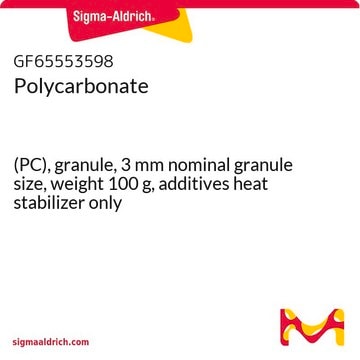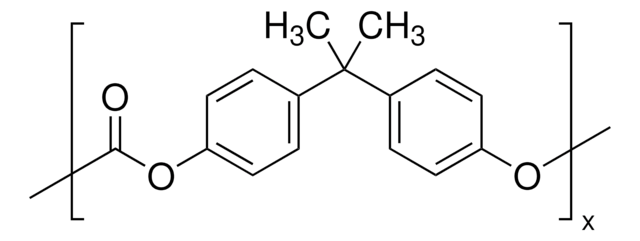389021
Poly(propylene carbonate)
average Mn ~50,000 by GPC
Synonym(s):
PPC
About This Item
Recommended Products
form
pellets
mol wt
average Mn ~50,000 by GPC
storage temp.
−20°C
Related Categories
General description
Application
Storage Class Code
11 - Combustible Solids
WGK
WGK 3
Flash Point(F)
Not applicable
Flash Point(C)
Not applicable
Personal Protective Equipment
Certificates of Analysis (COA)
Search for Certificates of Analysis (COA) by entering the products Lot/Batch Number. Lot and Batch Numbers can be found on a product’s label following the words ‘Lot’ or ‘Batch’.
Already Own This Product?
Find documentation for the products that you have recently purchased in the Document Library.
Customers Also Viewed
Articles
Electrospinning technique applications discussed, emphasizing control of nanofibers and assembly into 3D architectures.
Electrospinning technique applications discussed, emphasizing control of nanofibers and assembly into 3D architectures.
Electrospinning technique applications discussed, emphasizing control of nanofibers and assembly into 3D architectures.
Electrospinning technique applications discussed, emphasizing control of nanofibers and assembly into 3D architectures.
Our team of scientists has experience in all areas of research including Life Science, Material Science, Chemical Synthesis, Chromatography, Analytical and many others.
Contact Technical Service










